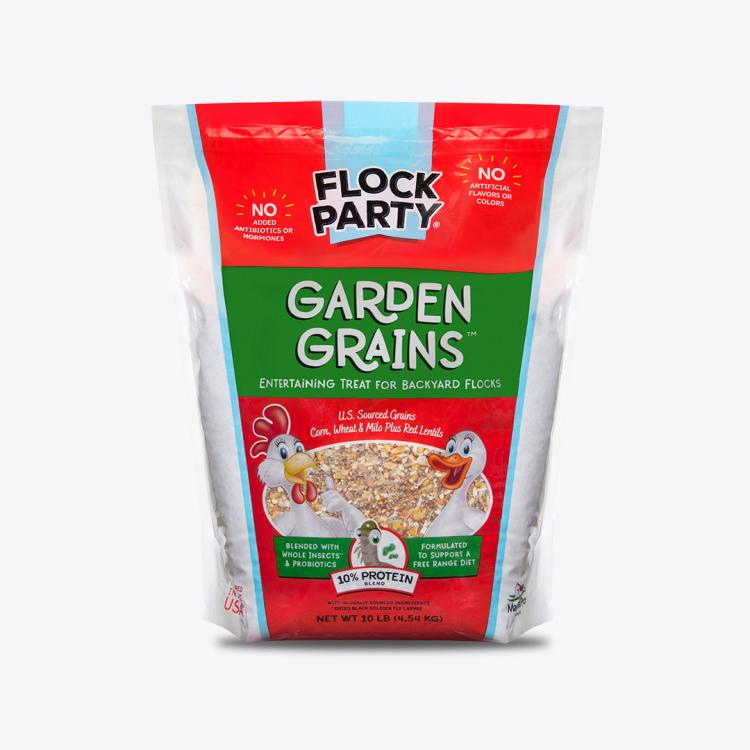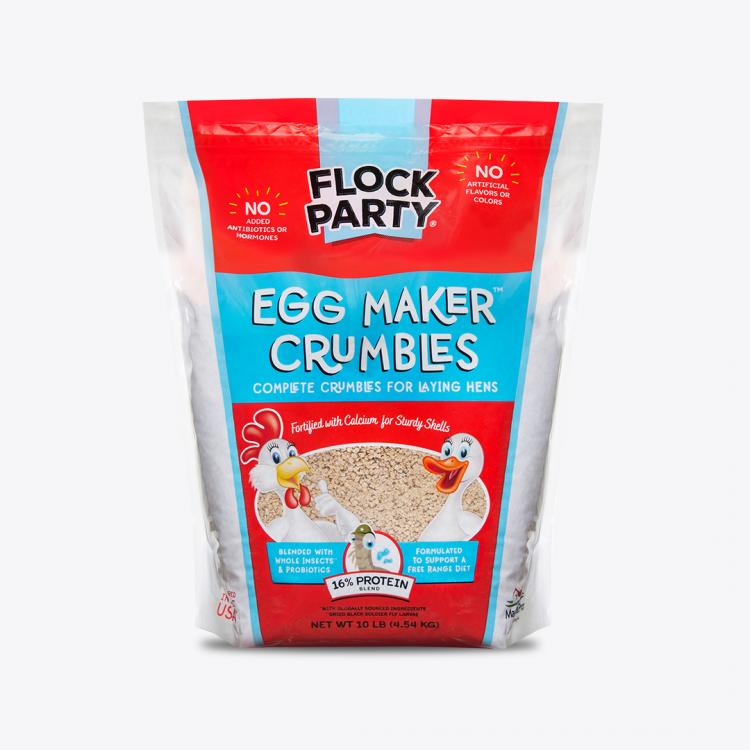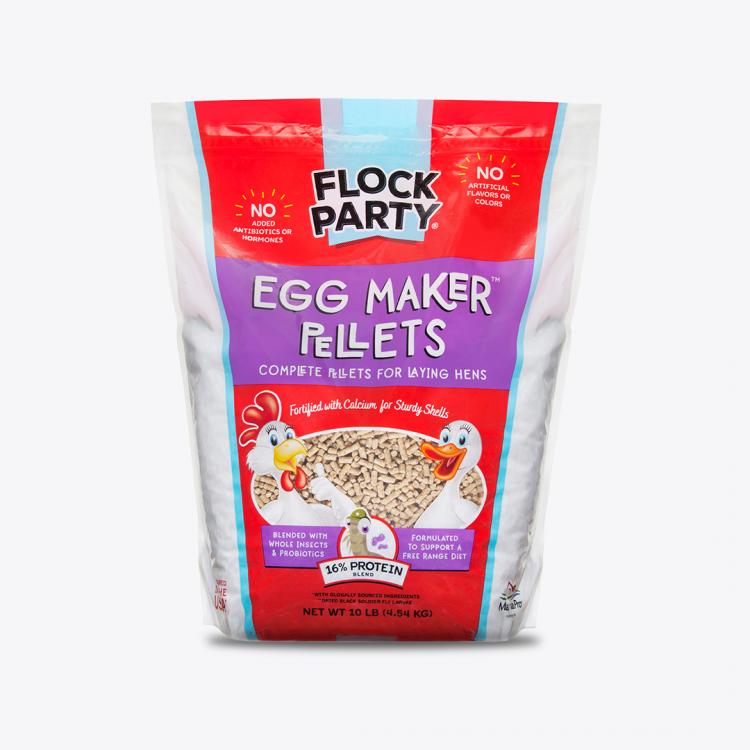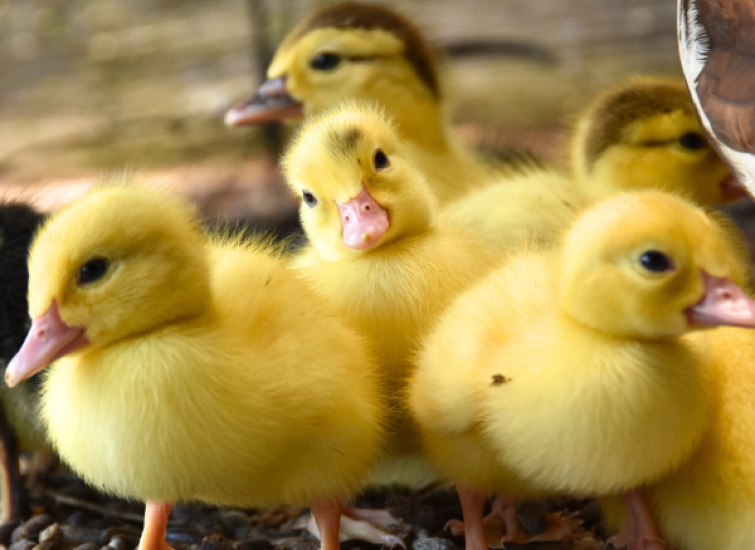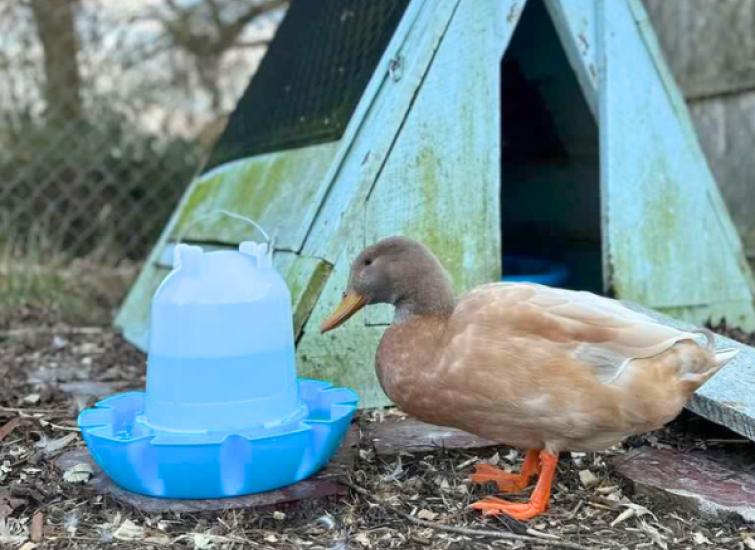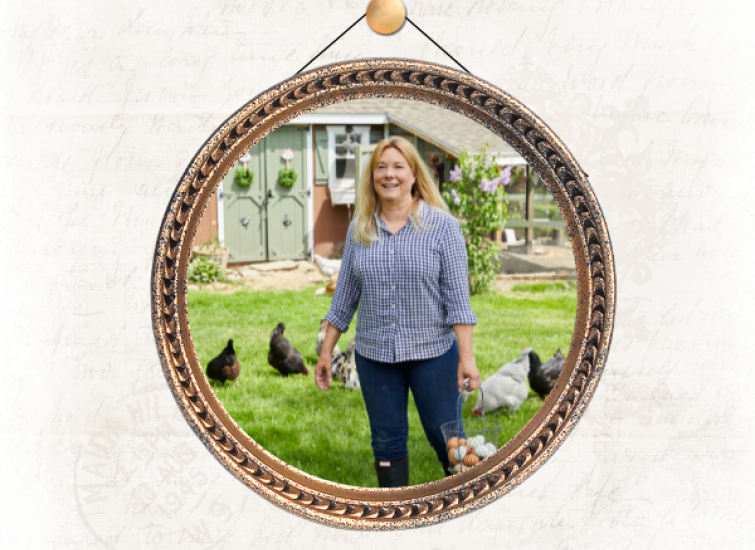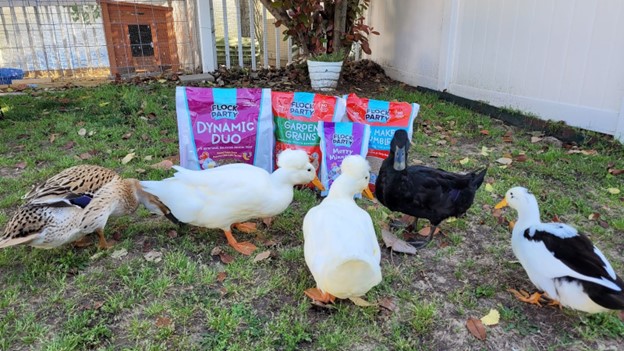
Pet Duck Nutrition: A Dive into Dietary Requirements for Ducks
Pet ducks, with their affectionate quacks and endearing waddles, have charmed their way into the hearts of many animal lovers. While their adorable antics might steal the show, it's crucial to understand their dietary needs for their well-being.
Let's dive into the nutritional needs of domestic ducks and learn how to cater to them effectively.
Embracing the Omnivorous Palate
Ducks, as gourmands of both the land and water, relish a mix of greens and proteins that rival any gourmet's palate. From specially formulated duck feeds to juicy mealworms and crickets, we're spilling the secrets to keeping those quackers energetic and their feathers looking tip-top!
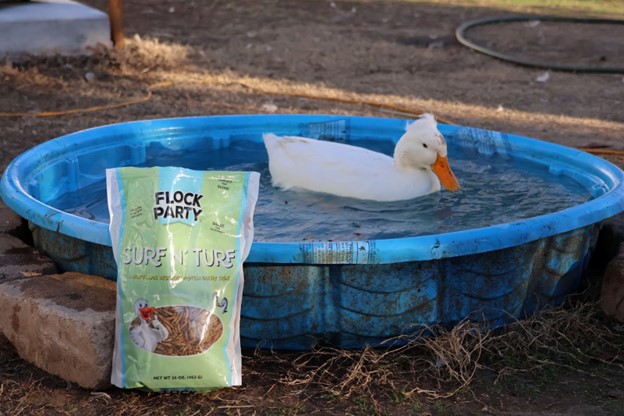
Wild ducks, as omnivores, thrive on a varied diet comprising both plant-based and protein-rich elements. Pet ducks' nutritional intake must reflect the balance found in their natural habitat. This includes grains, greens, insects, and aquatic plants.
Providing a combination of commercial feed and fresh, nutrient-dense natural food is key to fulfilling their dietary needs while considering their role as part of the household.
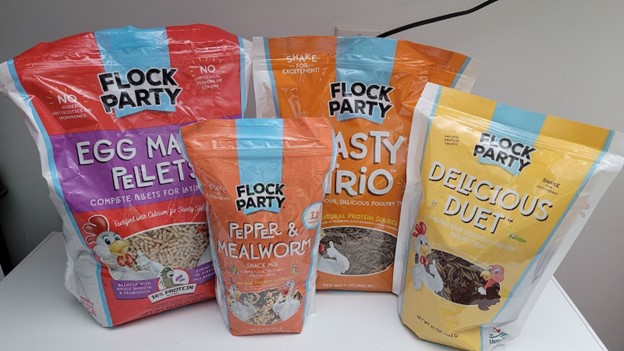
Tips for Feeding Ducks: Key Nutrients for Optimal Health
- Protein Power: Supporting muscle growth and overall vitality, a sufficient protein intake is essential for pet ducks. Incorporating an excellent source of protein like duck feed, mealworms, and crickets can help maintain their energy levels and promote healthy feather development.
- Carbohydrate Sustenance: Ducks derive energy from carbohydrates, making grains, vegetables, and fruits an integral part of their diet. Opt for a mix of whole grains and nutrient-rich greens to support their active lifestyle and ensure a steady supply of energy for their playful pursuits.
- Healthy Fats: An appropriate fat intake contributes to the insulation and buoyancy of pet ducks. Including seeds and grains rich in healthy fats helps maintain their body temperature and buoyancy, complementing their active water-bound lifestyles.
Catering to Their Dietary Micronutrient Needs
- Vitamin Vitality: Pet ducks need a variety of vitamins, such as A, D, E, and K, to support their immune system, vision, and bone health. These vitamins are often obtained from a balanced diet that includes leafy greens, grains, and commercial feed supplements.
- Mineral Essentials: Essential minerals, such as calcium and phosphorus, are vital for sustaining healthy bone development and skeletal integrity in pet ducks. Additionally, minerals like iron, zinc, and manganese contribute to various metabolic functions within the duck's body. Ensure access to a calcium source, like crushed oyster shells, to meet their mineral needs, promoting strong bone structure and overall vitality.
- Calcium for Strong Shells: Calcium is pivotal for the development of sturdy eggshells, which protect the delicate life within. Supplementing their diet with calcium-rich sources, such as crushed oyster shells or specialized layer feed, becomes indispensable in fortifying the eggshells and supporting the overall health of egg-laying pet ducks.
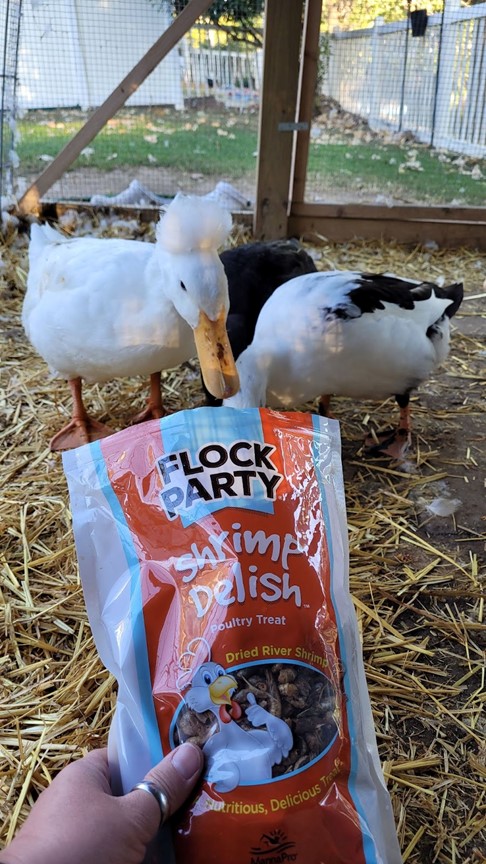
Risks of Sharing Human Snacks: Avoid the Following Foods
Hold your quack! As much as we'd love to share our go-to snacks with our web-footed pals, it's vital to know what's a strict no-no. There are no health benefits of salt, sugar, and processed fats for ducks. In fact, these items can spell trouble for our duck friends, leading to a puddle of health problems.
Let's learn the art of saying no to those adorable begging quacks and keep our feathered friends safe and happy!
- Bread and Other Processed Baked Goods: While often thought of as a treat for ducks, bread lacks essential nutrients and can lead to malnutrition and various health problems if over-consumed.
- Salty Snacks: Foods high in salt, such as chips or pretzels, can lead to dehydration and disrupt the delicate balance of a duck's system.
- Sugary Treats: Items like candy, cake, and other sugary snacks can contribute to obesity, diabetes, and other health issues in pet ducks.
- Junk Food and Fast Food: Avoid feeding ducks any fast food or processed snacks, as they are typically high in unhealthy fats, sugars, and additives that can harm their well-being.
- Processed Meats: Duck diets should not include processed meats such as bacon, sausages, or deli meats, as they contain high levels of salt, preservatives, and other additives that are harmful to their health.
- Foods with Additives or Artificial Ingredients: Steer clear of feeding ducks any food items that contain artificial colors, flavors, or preservatives, as these can lead to digestive issues and other health complications.
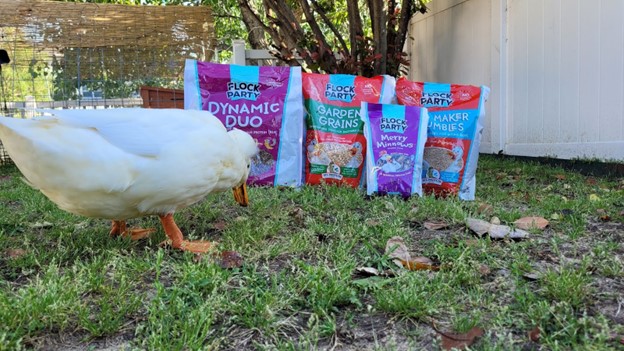
Delightful Duck Treats: Enhancing Pet Duck Diets with Nutritious Snacks
Who said snacks can't be nutritious and fun? Prepare to be amazed as we unravel the secrets of earthworms, grubs, and mealworms, those little delights that make our ducks quack with joy.
Learn how these protein-packed treats not only satisfy their taste buds but also make for the perfect training rewards, strengthening the bond between you and your feathered companions!
Snacks can be a delightful addition to your pet ducks' diet, offering them occasional treats that they eagerly anticipate. Natural snacks like mealworms, earthworms, and grubs are not only enjoyed by ducks but can also provide essential protein and variety to their diet. These protein-rich treats not only serve as a tasty reward but can also be used for training purposes, strengthening the bond between you and your ducks.
However, it's crucial to offer these snacks in moderation, as part of a well-balanced diet, to ensure they receive the essential nutrients they need from their main meals. With the right approach, these snacks can enhance the overall well-being and happiness of your pet ducks while allowing you to share some special moments of joy with your feathered companions.
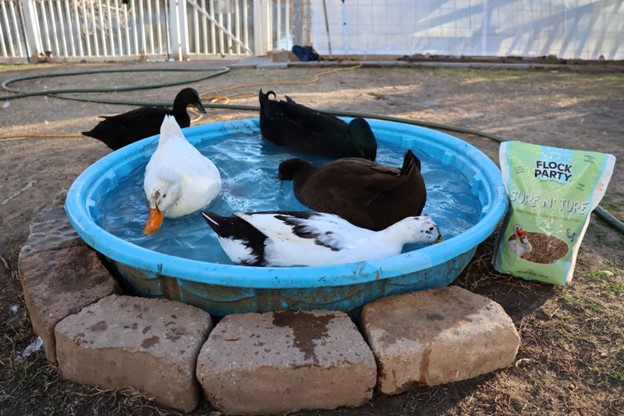
Splash, Quack, and Hydrate! The Importance of Clean Water for Pet Ducks
Let's talk about the liquid love! For our water-loving buddies, hydration is more than just a thirst-quencher - it's their daily splash of joy, their digestive pick-me-up, and their very own temperature control. Discover how a splash of clean water keeps our ducks preened, healthy, and happily splashing away in their very own feathered wonderland!
- Hydration. Hydration is paramount for the overall health and well-being of pet ducks. Water serves as a lifeline, contributing to various aspects of their daily routines and bodily functions.
- Preening. Beyond quenching their thirst, water acts as a vital medium for maintaining their hygiene and feather health. Regular access to clean and accessible water enables ducks to engage in essential preening activities, ensuring their feathers remain well-oiled and waterproof, thus safeguarding them from the elements. This process of preening not only promotes feather health but also fosters a sense of comfort and relaxation for these social creatures, encouraging a contented and harmonious environment within their living space.
- Digestion. Moreover, water serves as a natural conduit for aiding digestion, facilitating the smooth transition of food through the digestive system, and promoting overall digestive health.
- Regulate Body Temperature. Additionally, water acts as a crucial regulator of their body temperature, especially during fluctuating weather conditions, allowing ducks to maintain a stable internal environment, which is integral to their overall health and vitality.
Providing a consistent and adequate supply of fresh water ensures that pet ducks can thrive in an environment that promotes their hydration, health, and, ultimately, their happiness and well-being as beloved members of the household.
Egg-citing Nutritional Adventures
Eggs, eggs, and more eggs! Unveil the mysteries of duck nutrition as we unravel the secrets behind sturdy eggshells and consistent egg-laying. From calcium-rich treats to vitamin-packed feeds, we'll make sure your feathered friends are all set for their daily egg-cellent performances!
Understanding the specific dietary needs of pet ducks during the egg-laying phase is crucial for sustaining their reproductive health and ensuring they lay eggs that are high-quality and nutritionally dense. A well-balanced diet, rich in protein, calcium, and vitamins, supplemented with ample hydration, contributes to the well-being of egg-laying ducks and supports their role as cherished members of the household.
Tailoring Nutrition to Different Stages of Duck Life
Just like us, ducks have different dietary needs as they grow. Dive into the feeding habits that fuel their growth and keep them quacking with energy. From the fluffy ducklings to the seasoned adults, we've got the scoop on what keeps them healthy and thriving in every stage of their charming lives!
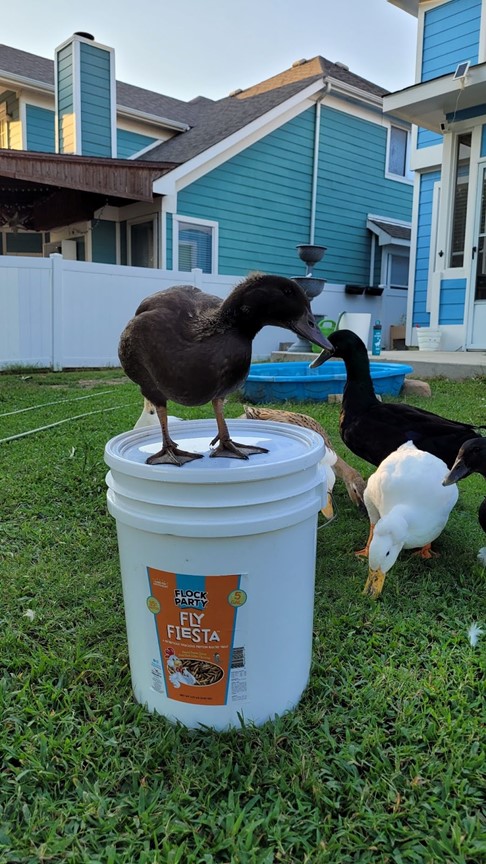
In a Nut-Shell
Ducks as pets bring an element of joy and uniqueness to a household. Their amiable and affectionate nature often makes them endearing companions, fostering a special bond with their caretakers. While they require dedicated care and attention, the reward of their playful interactions and gentle quacks can be incredibly fulfilling. As social creatures, they thrive in the company of their human counterparts, often displaying a remarkable sense of loyalty and companionship.
However, it's important to note that ducks are highly social creatures, emphasizing the significance of having at least two ducks to ensure their emotional well-being. Whether waddling around the backyard or splashing in a small pond, their presence adds a touch of charm and liveliness to any domestic setting. By acknowledging the distinct nutritional needs of pet ducks and incorporating a well-balanced diet into their daily routine, we can ensure that these delightful creatures thrive and continue to enchant us with their delightful presence and affectionate quacks. Let's embrace their dietary uniqueness and cherish the opportunity to foster their well-being as beloved members of our families.
About the Author
Melanie, the passionate voice behind Ducks of Providence, is not your average blog writer. She's got a bustling household in a serene residential area, where she shares her life with her loving husband and their seven delightful ducks: Emma, Hertha, Schnatterinchen, Penny, Simon, Ronja, and Krümel.
Melanie's insights into duck care go beyond just theory; they come from a place of genuine love and firsthand experience. Her commitment to sharing anecdotes and examples from her personal journey with her beloved ducks adds warmth and relatability to every aspect of her writing.
